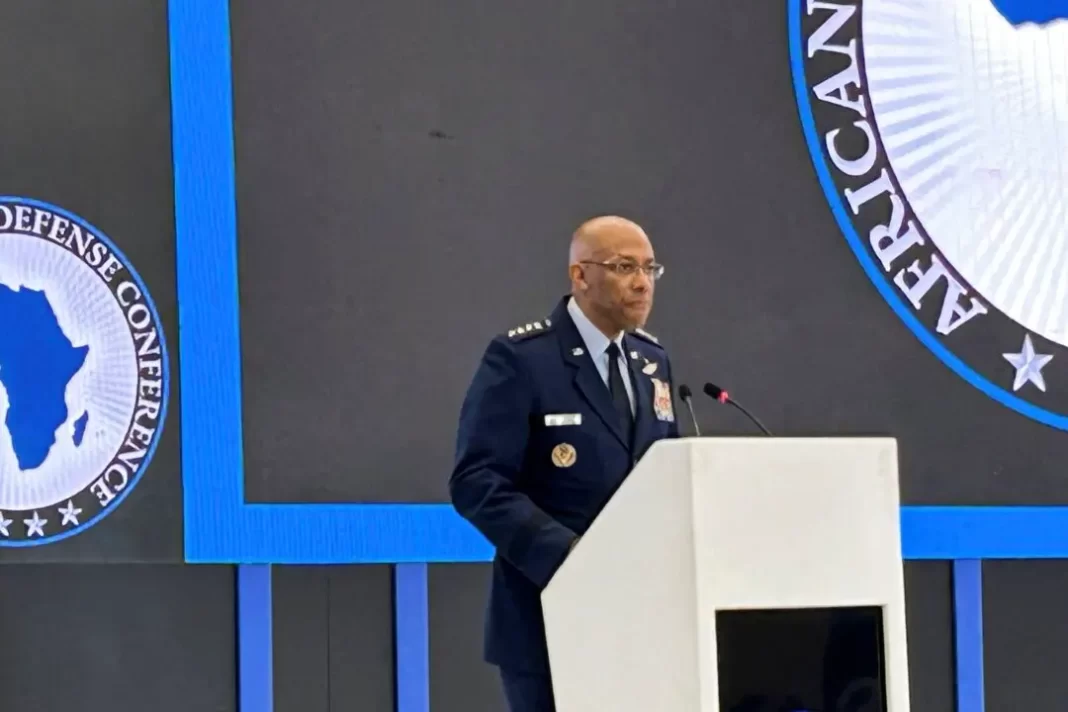Air Force General C.Q. Brown, the Chairman of the Joint Chiefs of Staff, started a surprise visit to the Middle East on Saturday. His mission: to prevent the region from spiralling into a broader conflict, especially as tensions mount between Iran and Israel.
Focus on Jordan, Egypt, and Israel
General Brown arrived in Jordan first, and he will soon be traveling to Egypt and Israel. His goal is to hear directly from military leaders in these countries about their perspectives on the current situation. Brown’s visit comes at a critical time as the United States attempts to broker a ceasefire deal between Israel and Hamas in Gaza.
“If we can achieve a ceasefire-for-hostages deal, it will help bring down the temperature,” Brown told reporters before arriving in Jordan. He emphasised that his discussions will focus on ways to deter any further escalation in the region.
US Efforts to Limit Escalation
The conflict between Israel and Hamas, now in its 11th month it has devastated Gaza. Leading to widespread destruction and the displacement of nearly all of the 2.3 million residents. The war has also sparked violence beyond Gaza’s borders. With clashes between Israel and Hezbollah in Lebanon, and attacks on US forces in Syria, Iraq, and Jordan by Iran-aligned militias.
The US military has increased its presence in the Middle East to prevent more assaults. The Theodore Roosevelt carrier strike group has been replaced in the area by the Abraham Lincoln aircraft carrier strike group. Additionally, an Air Force F-22 Raptor squadron and a cruise missile submarine have been deployed. In order to deter any major new attacks by Iran or its allies.
According to Brown, we’ve added more possibilities to deliver a powerful message. Our objectives are to prevent a larger confrontation and defend our forces in the event that they are attacked.
The Iranian Threat
Iran has vowed to retaliate for the killing of Hamas leader Ismail Haniyeh. He was assassinated while visiting Tehran last month. Israel is yet to accept its involvement. But Iran has blamed the country for the killing. Hezbollah, an Iranian-backed group in Lebanon, has also threatened to respond after one of its senior commanders was killed in Beirut last month.
US officials are closely monitoring the situation, anticipating that Iran might follow through on its threats. Brown pointed out that we maintain our stance, monitoring intelligence and force movements. Without making assumptions about the actions of Iran or its partners.
Iran’s new Foreign Minister, Abbas Araqchi, has stated that his country has the right to retaliate. This follows a recent incident in which Iran launched a barrage of drones, cruise missiles, and ballistic missiles towards Israel. This lead to damaging of two Israeli air bases. The US, Israel, and their allies managed to intercept and destroy most of the weapons before they reached their targets.
Seeking Solutions
During his visit, General Brown aims to discuss potential scenarios with his Israeli counterpart. He stated, “I want to know how Israel might react based on what Iran or Hezbollah does.”
The ongoing conflict in Gaza began on October 7, 2023, when Hamas launched a surprise attack on Israeli communities, killing around 1,200 people and abducting approximately 250 hostages. Since then, Israel’s military response has caused immense suffering in Gaza, with at least 40,000 people killed and deadly conditions such as hunger and disease on the rise.
As tensions remain high, General Brown’s visit underscores the importance of dialogue and cooperation among US allies in the region. The stakes are high, and the need to prevent a wider conflict has never been more urgent.

